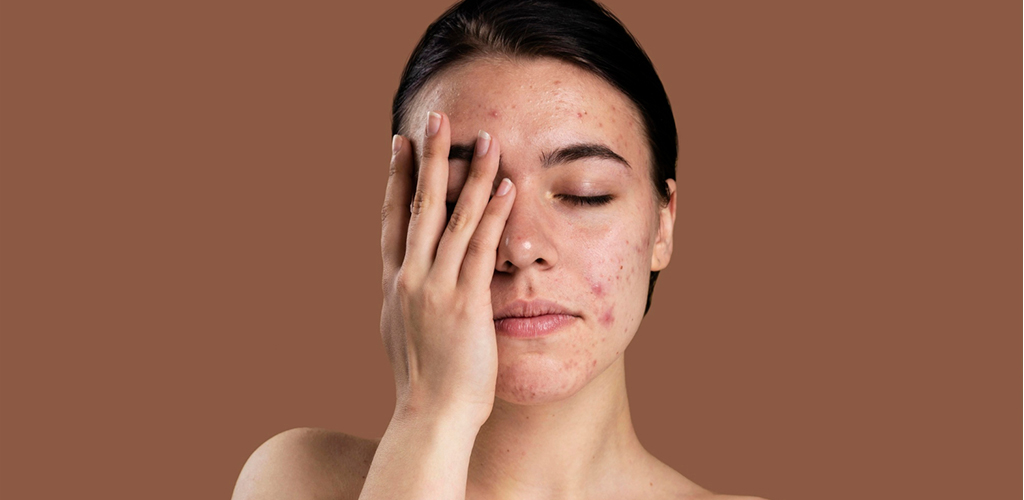How to Treat Pigmentation? A Complete Guide

Major Causes of Pigmentation on Face:
Pigmentation on the face can be caused by a variety of factors, including sun exposure, hormonal changes, genetics, certain medications, and skin injuries.
Some of the most common causes of pigmentation on the face include:
1. Melasma: This is a common condition that causes dark, symmetrical patches on the face, usually on the cheeks, forehead, upper lip, and chin. It is often caused by hormonal changes. Such as those that occur during pregnancy or with the use of hormonal contraceptives.
2. Sun damage: Exposure to ultraviolet (UV) rays from the sun can cause dark spots, age spots, and freckles on the face.
3. Post-inflammatory hyperpigmentation: This is a common condition that occurs when the skin is injured or inflamed. Such as from acne or a burn. It can result in dark spots or discoloration on the face.
4. Certain Medications: Some medications can cause pigmentation, such as antibiotics, antipsychotics, and hormonal therapy
Treatment Options for Pigmentation on the Face includes:
1. Topical creams: Hydroquinone, tretinoin, kojic acid, azelaic acid, niacinamide, and vitamin C are some of the ingredients that can be found in topical creams that can help to lighten pigmentation on the face.
2. Chemical peels: A chemical peel uses a solution to remove the top layers of the skin. Which can help to lighten pigmentation and improve the overall appearance of the skin.
3. Laser therapy: Laser therapy can target the melanin in the pigmented areas, breaking it down and making it easier for the body to remove it.
4. Microdermabrasion: This is a non-invasive procedure that uses a fine spray of crystals to remove the outer layers of the skin. Which can help to lighten pigmentation and improve the overall appearance of the skin.
5. Cryotherapy: Cryotherapy involves freezing of pigmented area with liquid nitrogen, which causes the pigmented cells to die and peel off.
It’s important to note that, while these treatments can be effective. They may also have side effects and may not be suitable for everyone. It’s always best to consult with a dermatologist to determine the best course of treatment for your specific needs and skin type.
Products that Help to Treat Pigmentation on the Face:
The Ordinary L-Ascorbic Acid:
The Ordinary L-Ascorbic Acid is a potent form of Vitamin C that can be effective in treating pigmentation on the face. Vitamin C is a potent antioxidant that can help to inhibit the production of melanin, the pigment that gives color to the skin. When applied topically, L-Ascorbic acid can help to reduce the appearance of dark spots, age spots, and freckles. It also helps to boost collagen production, which can help to improve the overall texture and appearance of the skin.
It’s important to note that L-Ascorbic acid can be quite acidic and can cause skin irritation and sensitivity to sun exposure. It is recommended to use it in the morning and always follow it with sunscreen to protect the skin. It’s also recommended to start with a lower concentration of Vitamin C and gradually work your way up to higher concentrations as your skin becomes accustomed to it.
It’s always best to patch test before applying it to the face and to consult with a dermatologist. If you have any concerns about using L-Ascorbic Acid. Additionally, it’s worth noting that although The Ordinary Ascorbic acid can be effective in treating pigmentation. It may not be a quick fix and may take several weeks or months to see visible results.


The Ordinary Alpha Arbutin:
The Ordinary Alpha Arbutin is a skincare product that contains alpha arbutin, a derivative of hydroquinone. Which is a well-known ingredient used to lighten pigmentation on the face. Alpha arbutin is a more stable form of hydroquinone and is considered to be less irritating than hydroquinone.
When applied topically, alpha arbutin can help to inhibit the production of melanin, the pigment that gives color to the skin. This can help to reduce the appearance of dark spots, age spots, and freckles on the face. Alpha arbutin also helps to even out skin tone and improve the overall appearance of the skin.
It’s important to note that, while alpha arbutin can be effective in treating pigmentation. It may not be a quick fix and may take several weeks or months to see visible results. Additionally, it’s recommended to patch test before applying it to the face and to consult with a dermatologist. If you have any concerns about using alpha arbutin.
It’s also worth noting that, while alpha arbutin is considered to be less irritating than hydroquinone. It can still cause irritation or dryness in some individuals. So, it’s important to monitor your skin’s reaction to the product and adjust usage accordingly.
The Ordinary Glycolic Acid Toner:
The Ordinary Glycolic Acid Toner is a skincare product that contains glycolic acid, which is an alpha hydroxy acid (AHA) that is derived from sugar cane. Glycolic acid is known for its exfoliating properties, which can help to remove dead skin cells and reveal brighter, smoother skin.
When applied topically, glycolic acid can help to reduce the appearance of pigmentation on the face by removing the top layer of dead skin cells that can make dark spots appear darker. Additionally, glycolic acid can help to improve the overall texture and tone of the skin by promoting cell turnover and collagen production.
It’s important to note that while glycolic acid can be effective in treating pigmentation. It may not be a quick fix and may take several weeks or months to see visible results. Additionally, it’s recommended to start with a lower concentration of glycolic acid and gradually work your way up to higher concentrations as your skin becomes accustomed to it.
It’s also worth noting that, while glycolic acid can be beneficial for improving the appearance of pigmentation. It can also cause irritation or dryness in some individuals. So, it’s important to monitor your skin’s reaction to the product and adjust usage accordingly. Sunscreen is also necessary when using glycolic acid toner as it increases skin sensitivity to the sun.

